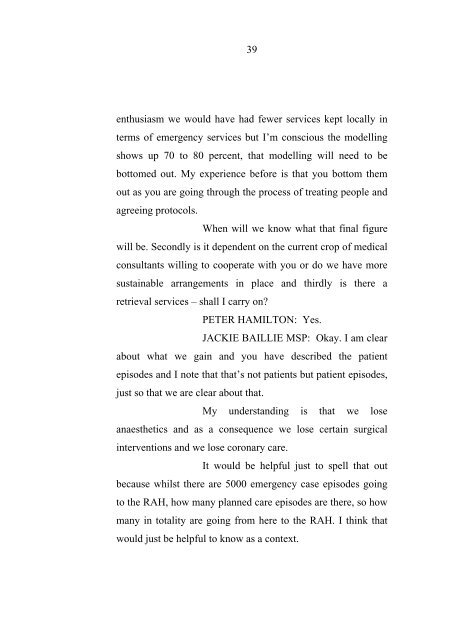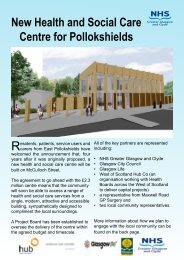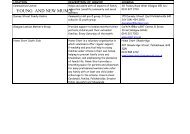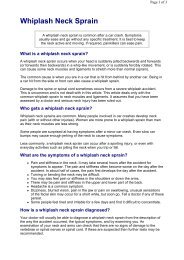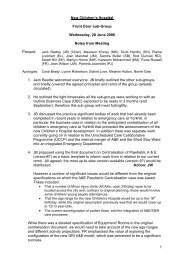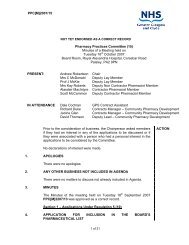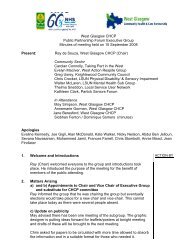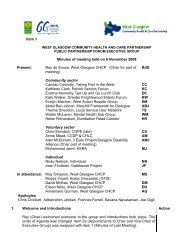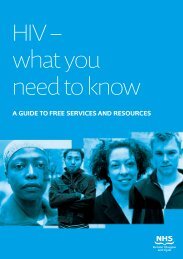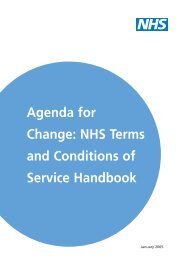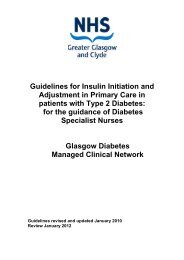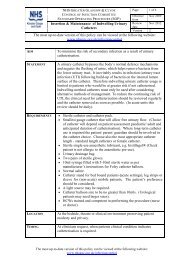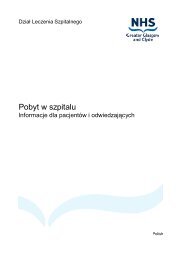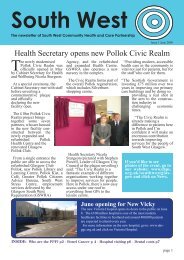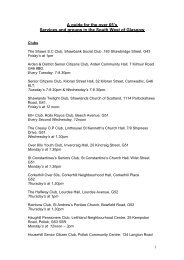View - NHS Greater Glasgow and Clyde
View - NHS Greater Glasgow and Clyde
View - NHS Greater Glasgow and Clyde
You also want an ePaper? Increase the reach of your titles
YUMPU automatically turns print PDFs into web optimized ePapers that Google loves.
39<br />
enthusiasm we would have had fewer services kept locally in<br />
terms of emergency services but I’m conscious the modelling<br />
shows up 70 to 80 percent, that modelling will need to be<br />
bottomed out. My experience before is that you bottom them<br />
out as you are going through the process of treating people <strong>and</strong><br />
agreeing protocols.<br />
When will we know what that final figure<br />
will be. Secondly is it dependent on the current crop of medical<br />
consultants willing to cooperate with you or do we have more<br />
sustainable arrangements in place <strong>and</strong> thirdly is there a<br />
retrieval services – shall I carry on?<br />
PETER HAMILTON: Yes.<br />
JACKIE BAILLIE MSP: Okay. I am clear<br />
about what we gain <strong>and</strong> you have described the patient<br />
episodes <strong>and</strong> I note that that’s not patients but patient episodes,<br />
just so that we are clear about that.<br />
My underst<strong>and</strong>ing is that we lose<br />
anaesthetics <strong>and</strong> as a consequence we lose certain surgical<br />
interventions <strong>and</strong> we lose coronary care.<br />
It would be helpful just to spell that out<br />
because whilst there are 5000 emergency case episodes going<br />
to the RAH, how many planned care episodes are there, so how<br />
many in totality are going from here to the RAH. I think that<br />
would just be helpful to know as a context.


